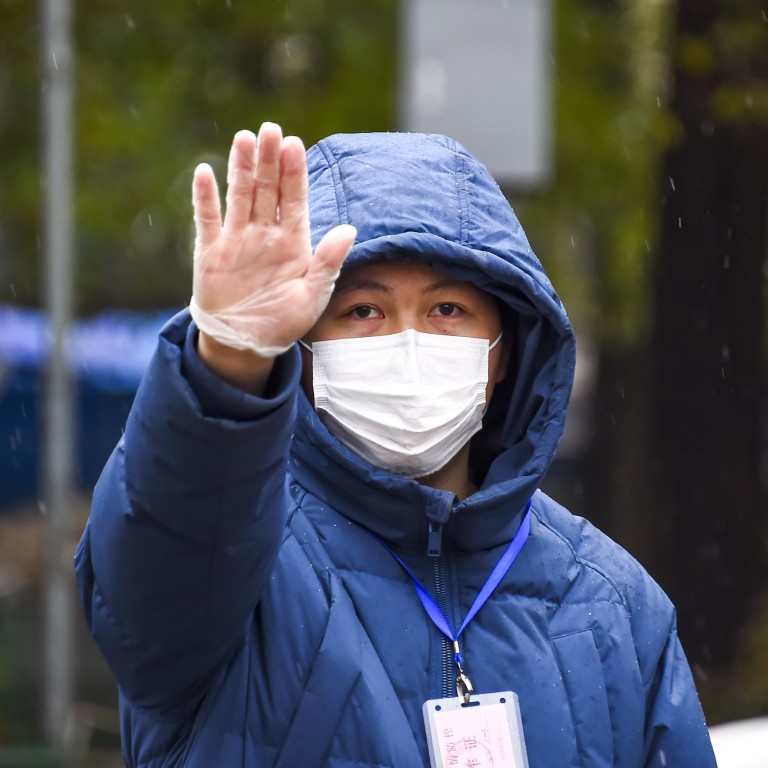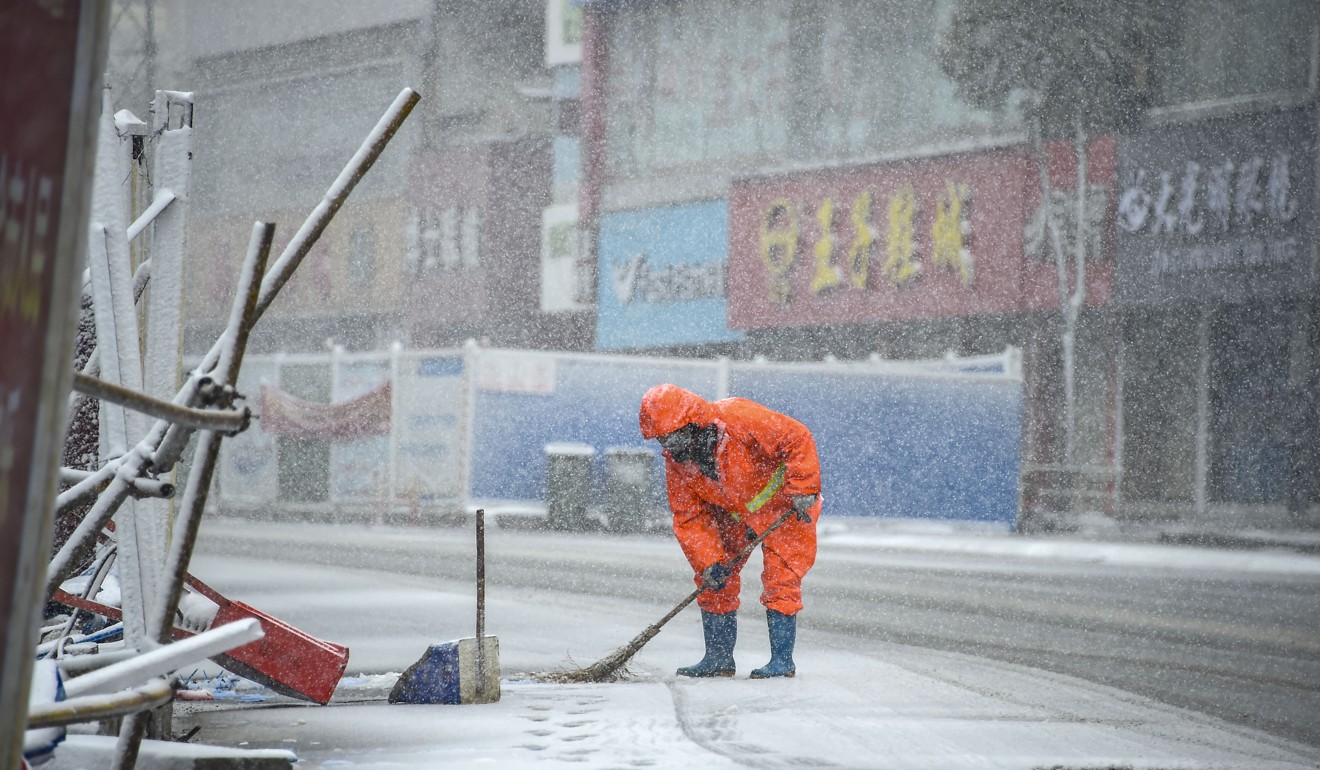
Coronavirus: Xiaogan, China’s second worst-hit city, bans people from leaving their homes
- Order applies to urban residents, while rural villagers cannot visit each other or hold gatherings, and those who flout the order face 10 days in detention
- Some supermarkets and pharmacies will remain open to deliver supplies
The latest notice from Xiaogan’s committee tackling the outbreak said: “All urban residents must stay at home and are strictly forbidden from going out. Rural villagers are strictly forbidden from … visiting each other or holding any gatherings.”
It continued: “All vehicles, including motorcycles and bicycles, are banned from the roads … All non-essential public places must be closed.”

The unprecedented Xiaogan restrictions took effect from midnight on Sunday. Anyone who does not comply will be fined 500 yuan (US$72), their vehicles will be impounded and they could be detained for 10 days, the notice said. They will also be labelled “untrustworthy” on an official blacklist.
Any Communist Party member who breaks the rules will be investigated by the anti-corruption watchdog.
The rules do not apply to medical workers, people transporting essential goods, officials involved in prevention and control of the epidemic, and those who need to leave their homes because of illness, to give birth or for funerals.
Taiwan uses cuddly mascots like ‘spokesdog’ in coronavirus prevention campaign
Xiaogan is a city of 4.8 million people about 60km (37 miles) from Wuhan, where the new virus strain originated. More than 2,700 people had the coronavirus and 70 had died from it in Xiaogan as of Sunday – making it the worst affected city after Wuhan.
The virus, which causes a disease known as Covid-19, has killed more than 1,700 people and infected over 70,000, most of them in Hubei, since the outbreak began in December.
Xiaogan had already been in lockdown since January 25, with highway access blocked the next day, and all hotels and restaurants told to close from January 27.
With residents no longer allowed to leave their homes, local authorities have designated 42 supermarkets, 161 grocery suppliers and 88 pharmacies to remain open across the city. Residents will be able to place orders via messaging apps or phone and have their shopping delivered at the entrance to their communities the next day.
The Civil Affairs Bureau last week provided a list of phone numbers for more than 130 officials for residents to contact if they needed help.

After weeks of lockdown, some Xiaogan residents were concerned about the new and even more extreme restrictions but said they understood why they were needed. Restaurateur Tu Zhihong, 45, said he was really worried about making ends meet.
“Our small restaurant mainly caters for university students nearby, but with the city still in lockdown and university postponed, we’re under a lot of financial pressure,” said Tu, adding that he hoped the government and landlords might provide some rent relief given the situation.
Chinese find ways to help, from free haircuts to an open-air virtual classroom
Yue Junzhou, who runs a clothing shop in the city, shared his concerns.
“As the epidemic gets worse every day, I can’t sell anything in the shop and all I can do is try to sell clothes online,” the 44-year-old said.
For Feng Juan, who lives in a rural village in Xiaogan, the latest announcement just made her more worried. “The stricter the government policies, the more severe the situation must be,” said Feng, 25, a loan officer for a bank in Shenzhen who has been working from home.
“Even though the village officers are helping us to get hold of daily necessities, it’s still very inconvenient because there’s no guarantee things will be delivered on time,” she said.
Among recent province-wide measures, residents of Hubei have been told to avoid social gatherings – even at other households – such as playing mahjong or cards, both popular activities.
But a group of neighbourhood volunteers enforcing the rules in a Xiaogan village caused outrage on social media after they apparently entered a family home and destroyed a mahjong table. Footage of the incident posted on social network Weibo on Friday shows a volunteer throwing a mahjong tile onto a table, prompting one of the players to stand and throw a tile at him. The other volunteers are then seen dragging the man from the home, while the mahjong table is taken outside and smashed on the ground.
Chinese medical staff paying ‘too high a price’ in battle to curb coronavirus
The scene angered many Weibo users.
“I hate gambling in mahjong clubs, but what these inspectors did in this incident is too much – the villagers were in their own home,” one person wrote. “Everyone can have some entertainment in their own home, right?”
John Cai, chairman of the Academy of China Healthcare Innovation Platform, a research institution in Shanghai, said the incident showed that some rural cadres were taking a “very simplistic and rude” attitude to controlling the outbreak.
“People who are staying at home and haven’t been in contact with others are at low risk of spreading the disease,” he said. “Citizens still have a right to privacy and their personal property and it shouldn’t be infringed.”
Purchase the China AI Report 2020 brought to you by SCMP Research and enjoy a 20% discount (original price US$400). This 60-page all new intelligence report gives you first-hand insights and analysis into the latest industry developments and intelligence about China AI. Get exclusive access to our webinars for continuous learning, and interact with China AI executives in live Q&A. Offer valid until 31 March 2020.

